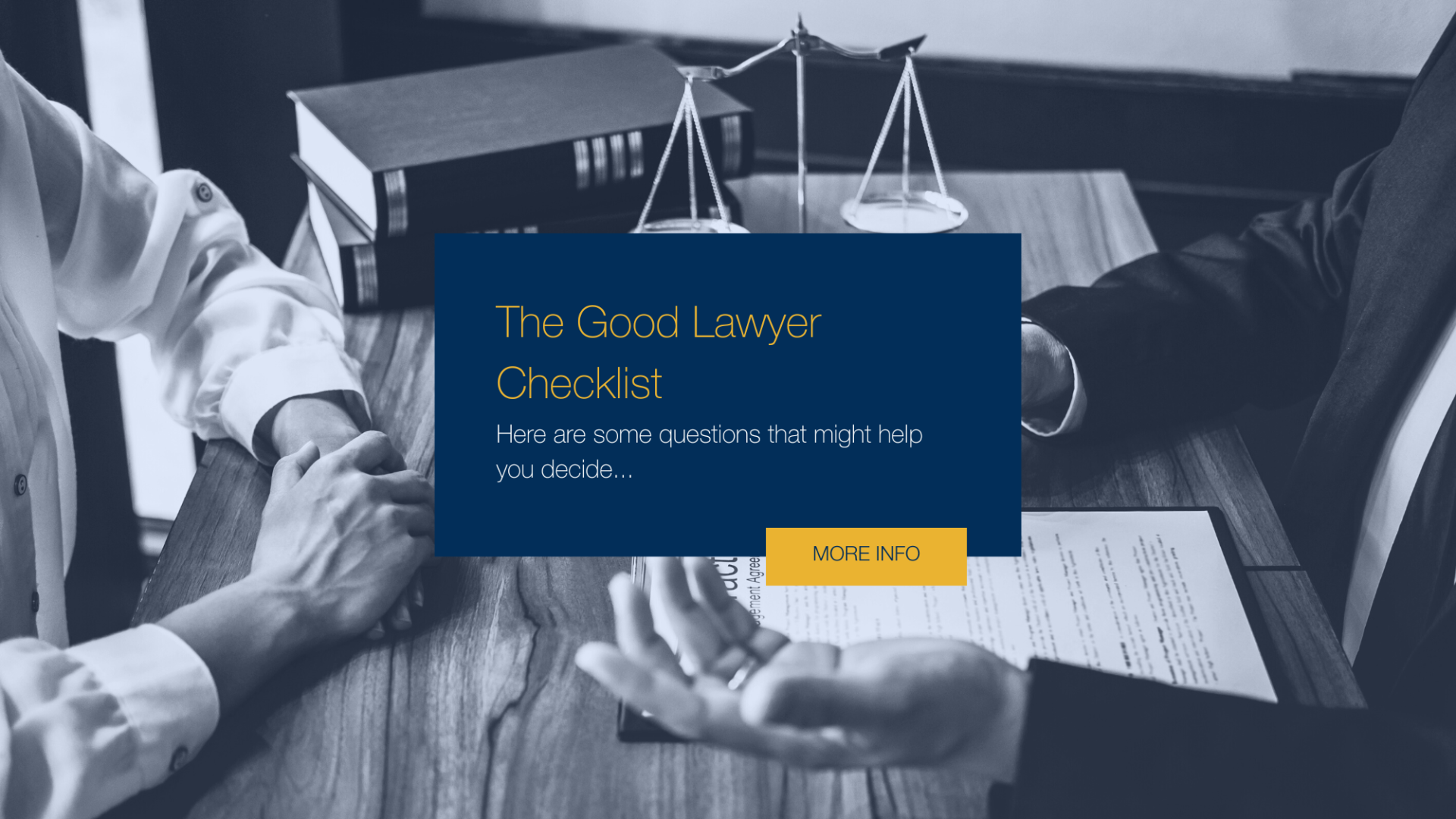THE GOOD LAWYER CHECKLIST
 By Shaun Adams
Subscribe to newsletter
By Shaun Adams
Subscribe to newsletterTHE GOOD LAWYER CHECKLIST
Your choice of lawyer for your property transaction will have a major impact on the outcome. We know that selecting one is difficult – so here are some questions that might help you decide.
1. FIRST IMPRESSIONS Could you immediately speak to someone who helped, and if not, how long was it before they called back? If a lawyer doesn’t respond immediately to new business, what will the ongoing service level be like?
2. WHAT ABOUT ABORTIVE COSTS? Are there charges if the deal doesn’t go through and if so, how are they calculated? Lawyers have many ways of charging for failed cases so could pay the same fee whether the deal goes through or not
3. REFERRAL COSTS If they have been recommended by a mortgage broker or estate agent, are the costs higher to cover any referral fees they might be paying Where lawyers pay referral fees, you should not have to pay extra to cover these - they should be absorbed,
4. PERFORMANCE FIGURES What is the average time for the lawyer to exchange a transaction, and what is their fall-through rate? Your choice of lawyer will impact the time it takes for your deal to go through, which also affects the likelihood of success
5. CASELOAD How many cases is a typical lawyer at the firm running at any one time? The more cases a lawyer has, the less time they can spend on your case, so it will take longer and be more likely to fall through. A reasonable number of live cases is about 50.
6. CASE HANDLING How many people will be working on a case, and if they have upcoming holidays, who will cover their work? A single lawyer working on a case can cause delays as more urgent cases will take priority. Also, if the lawyer is absent and no-one covers your file, the transaction will stop.
7. COMMUNICATION How do they communicate with clients – are they still using email or a secure client portal for messaging and case tracking? Fraud is a major problem and lawyers still using email put clients at risk. Portals also offer convenient out-of-hours case access.
8. WORKING WITH LENDERS Are there any particular mortgage lenders that the lawyer cannot act for? If the lawyer cannot act for your mortgage lender, they must instruct another solicitor to act for them which makes things slower, frustrating and less likely to go through.
9. TECHNOLOGY Does the lawyer use paper files or are all their documents held electronically? Lawyers using paper files are usually slower as accessing information takes longer and the process is less efficient.
10.OFFICE VISIT Do they insist that clients visit their office, or can the identification and signature process be carried out remotely? If the lawyer is not nearby, and insist on meeting, this will make the process slow and increases the risk of failure.
Need some advice on good solicitors to deal with the conveyancing on your property legal matters? Just ask us at Cooper Adams.
Content kindly provided by Peter Ambrose.


